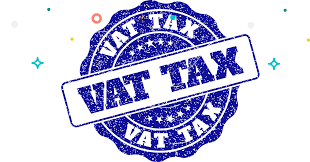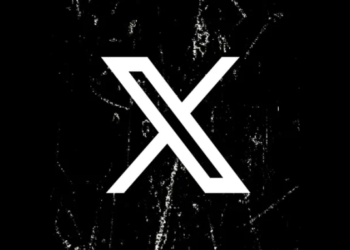As the digital economy expands, the Nigerian government has proactively established a number of legislative frameworks to meet the complexities of e-commerce.
This includes payment platform legislation, tax laws, intellectual property rights, e-commerce registration, and other laws that control the e-commerce industry in Nigeria.
You must register with the Corporate Affairs Commission (CAC) and the National Information Technology Development Agency (NITDA) before starting an e-commerce business in Nigeria.
Why should you register with CAC?
- Ease of electronic banking (creating a bank account) for your company.
- Proof of business legitimacy and a good reputation.
- Separation of the business identity from that of the owner. Where liability derives from the business, the owner will not be held personally liable or accountable.
- You will also profit from easier access to business funding and the prevention of criminal violations.
Why should you register with NITDA?
NITDA formed the National Electronic Commerce Council (NECC) to oversee e-commerce operations in the country. It supports foreign transactions for all Nigerian ecommerce businesses through its regulations and frameworks.
NITDA acts as a voice for the e-commerce industry, advocating for policies that promote its growth and development. This could involve pushing for initiatives that:
- simplify the process of setting up an e-commerce business.
- Encourage investment in digital infrastructure, like broadband internet access.
- Address challenges faced by e-commerce businesses, such as logistics and cybersecurity threats.
Understanding Taxation for Ecommerce in Nigeria: VAT, Income Tax, and Other Considerations
As the government continues to support e-commerce operations, it is important to understand the various taxes that apply to e-commerce transactions in Nigeria.
1) Value Added Tax (VAT) for E-commerce

a. Applicability to E-Commerce Transactions:
VAT is a consumption tax charged on the value added to products and services at every level of the supply chain. Nigeria’s VAT rate is currently 7.5% and applies to both e-commerce and traditional brick-and-mortar transactions.
The responsibility of VAT comes in when goods or services are supplied or imported into Nigeria. This means that both domestic and foreign e-commerce enterprises operating in Nigeria must charge VAT on their sales.
b. Registration and Compliance:
Businesses operating in Nigeria that want to collect VAT on e-commerce transactions must first register with the Federal Inland Revenue Service (FIRS).
The registration process involves filling out a VAT registration form and submitting supporting papers such as proof of business registration, proof of business address, and a tax identification number.
Once the registration is complete, you must file monthly or quarterly VAT returns with the FIRS, depending on your turnover. Failure to register for VAT can lead to penalties and interest costs.
2. Income Tax Implications
According to the 2021 Finance Act, digital enterprises with a revenue of more than N100 million will pay 30% in taxes, and for enterprises with a turnover of N25 million to N100 million, the tax rate is 20%. Companies with less than N25 million in revenue, on the other hand, do not pay any taxes.
How Much Tax Do I Pay?
The specific tax rate you pay depends on your business structure:
- Sole proprietorship or partnership: Your business income is taxed at your personal income tax rate.
- Limited liability company (LLC): Your business pays a separate income tax rate, currently set at 30% in Nigeria (as of May 2024).
Filing Your Income Tax Returns
- You are required to file your income tax returns annually with the Federal Inland Revenue Service (FIRS).
- The specific filing deadline depends on your business structure. It’s best to consult with a tax professional to ensure you meet the deadlines.
Nigeria’s government introduced Significant Economic Presence (SEP) for Non-Resident Companies (NRC). The SEP permits Nigeria, as a legal body, to tax the digital NRC if:
- Its digital portal mostly serves Nigerians.
- It brings in more than NGN 25 million or equivalent from Nigeria each year.
Other Tax Considerations
There are two types of tax considerations:
- Customs duties: They apply only to imported goods, and rates range from 5% to 35% based on the Harmonized Commodity and Coding System (HS code).
- Excise duties: The excise duty was raised from 20% On June 1, 2022, and is now applicable to telecommunication services as well as alcoholic beverages such as wines, spirits, beer and stout, cigarettes, and homogenized tobacco.
You’ll also need to factor in the excise duty when calculating the final price for telecommunication services you offer through your e-commerce platform (e.g., mobile phone top-up services).
Intellectual Property Protection: Trademarks, Copyrights, and Patents
A company’s intellectual property rights are its most valuable asset. We will look at how trademark protection, copyright protection, and patent protection ensure nobody steals your innovative ideas or copies your brand identity
Trademark Protection
A trademark is a word, symbol, design, or phrase that identifies the source of your goods or services and distinguishes them from your competitors. Consider it the distinctive stamp of your brand.
Registering your trademark with the Trademarks, Patents, and Designs Registry of Nigeria grants you exclusive rights to use the trademark for your products or services. This prevents others from using similar trademarks that could mislead customers. Examples are your brand name, logo, product design, or slogan.
Copyright Protection
Copyright protects original works of authorship, such as creative content used on your e-commerce platform. It automatically arises when you create original content, like:
- Product descriptions
- Images on your website or marketing materials
- Logos
- Blog posts or other written content
As long as the contents of your website or mobile application are your original content, they are protected as copyrightable items under the Nigerian Copyright Act (NCA).
While it’s not strictly necessary to register with NCA, it’s advisable to let them know as soon as you launch an online store.
Patent Protection
A patent gives you exclusive rights to an invention for a specific length of time. This could be a new product design, a one-of-a-kind manufacturing process, or a novel internet business model.
Obtaining a patent from the Nigerian Patent Office grants you exclusive rights to manufacture, use, sell, or import your innovation. This can be a great asset, especially if your e-commerce business is built around a unique product or method.
Consumer Protection in E-commerce: Nigerian Regulations and Best Practices for Business Compliance

The following is an overview of the main consumer protection laws and guidelines, together with recommended practices, to make sure your e-commerce store runs morally and conforms to Nigerian law.
1. Consumer Protection Laws:
- Federal Competition and Consumer Protection Act (FCCPA) 2019: This act encourages fair competition and protects customers against deceptive business tactics, advertising, and defective products.
- The Consumer Protection Council Act: This act empowers the Consumer Protection Council (CPC) to enforce consumer rights and ensure businesses comply with fair trading practices.
2. Customer Rights and Regulations:
- Right to Information: Customers have the right to clear and accurate information about the items or services you provide. This includes product descriptions, pricing, return procedures, and warranty details.
- Fair Competition: Consumers have the right to a competitive marketplace free of deceptive advertising and practices.
- Right to Safe Products: You are responsible for ensuring that the products you offer are safe to use and comply with any applicable safety standards.
- Right to Return or Exchange: Customers have the right to return or exchange faulty or defective products within a reasonable time limit. The precise return policy should be clearly stated on your website.
3. Quality Control Measures
You need to have a mechanism in place to determine whether a product is suitable for sale on your platform. There are two ways to ensure this: conduct regular store reviews and work with reputable manufacturers.
4. Customer Support System
One way to stand out from the competition is to create a team dedicated to resolving customer complaints and disputes.
5. Transparency
Provide clear and detailed information about your products, pricing, shipping policies, and return procedures; also, use a secure payment gateway to protect customer financial information during transactions
Data Privacy and Security: The Nigerian Perspective
The Nigerian government has special rules to protect personal data, which we shall go over below.
Nigeria Data Protection Regulation (NDPR) 2019
This is Nigeria’s main legislative framework for protecting data privacy. The NDPR dictates the rules that govern the authorized acquisition, handling, retention, and transfer of personal information.
The following are among NDPR’s primary duties:
- Regulating the gathering, storing, handling, and control of data belonging to Nigerian citizens.
- Establishing guidelines for e-commerce sites that manage citizens’ and residents’ personal information.
- Let the person whose data is being processed decide if they want it processed for marketing purposes.
- Determining the fine for violating someone’s right to privacy.
Cybercrime Act of 2015
The Cybercrime Act was put into effect to make sure financial platforms ask each onboarding user for a form of identity, safeguarding consumers from fraud and data theft.
Before using the media and getting a payment card, customers have to provide their details.
Objectives of the Act:
- Prohibition and Prevention: The Act aims to make cybercrimes in Nigeria illegal, preventable, detectable, prosecutable, and punishable. This covers transgressions such as online fraud, cyberstalking, and hacking.
- Protection of Critical National Infrastructure: It places a strong emphasis on safeguarding the crucial systems and services that are necessary to the security and well-being of the country, or critical national infrastructure (CNI). Power grids, banking networks, and communication systems are a few examples of this.
- Promotion of Cybersecurity: The Act pushes for the creation of a strong cybersecurity framework in Nigeria as well as the promotion of cybersecurity awareness.
Payment Regulations and Compliance: Challenges and Solutions
The Central Bank of Nigeria (CBN) actively updates and revises payment regulations, It governs payment methods such as payment schemes (i.e., remitta), card schemes, and payment terminal services. Keeping up with these changes can be a challenge for e-commerce businesses.
Challenges:
- Numerous Regulatory Bodies: A number of organizations, including the National Information Technology Development Agency (NITDA), the Securities and Exchange Commission (SEC), and the CBN, are involved in the regulation of e-commerce payments. This may result in conflicting laws and possible misunderstandings.
- Payment Gateway Integration: It can be technically challenging to integrate your e-commerce platform with compliant payment gateways that follow the most recent standards.
- Anti-Money Laundering (AML) and Know Your Customer (KYC) requirements: For e-commerce companies, putting in place strong KYC and AML protocols to stop fraud and money laundering may be a challenging and continuous task.
- Data Security Issues: It is essential to make sure that sensitive consumer data,especially financial data, is transmitted and stored securely. This necessitates continuing watchfulness and spending money on cybersecurity safeguards.
Solutions:
- Stay Up to Date: To stay up to date on modifications to payment regulations, subscribe to the newsletters and updates provided by the CBN and other regulatory bodies.
- Consult an expert: To guarantee compliance, speak with financial and legal experts who specialize in e-commerce rules.
- Join forces with an authorized payment gateway: Select a trustworthy payment gateway supplier with a track record of security that complies with the most recent CBN requirements.
- Automate the AML and KYC Procedures: Take into account putting technological solutions in place to expedite AML and KYC compliance processes.
Cross-border E-commerce Regulations and Compliance in Nigeria
Nigerians used to make international payments with debit cards, but forex shortages forced banks to block them.
Now, fintechs like Chipper Cash are stepping in, letting Nigerians use their USD cards for global transactions.
Advertising and Marketing Compliance
The Advertising Regulatory Council of Nigeria (ARCON) oversees all advertising and marketing communications in the country. They ensure ads are ethical and protect consumers.
They are also responsible for:
- Prohibiting international models and voice actors from appearing in Nigerian commercials; promoting local material instead.
- Make sure that all advertisements are approved before being published.
FAQ
1) What licenses or permits do I need for my online store?
Depending on your industry and products, you might require additional licenses from specific regulatory bodies. It’s best to consult a legal professional to determine the exact licenses needed for your business.
2) Can I use any payment gateway for my online store?
No, you must use a payment gateway that is licensed by the Central Bank of Nigeria (CBN) to ensure secure and compliant transactions.
3) What are my obligations regarding customer returns and refunds?
Nigerian law guarantees customers the right to return faulty or defective products within a reasonable timeframe. You’ll need to have a clear return and refund policy outlined on your website.
Conclusion
Understanding the essential regulatory frameworks and taking proactive steps towards compliance can help you ensure that your e-commerce business runs smoothly and securely. Remember that this is a dynamic environment, and being up to date on regulatory changes is important for long-term success. Your e-commerce business can prosper in Nigeria’s dynamic and ever-growing online industry if you are committed to compliance and understand the requirements.

















